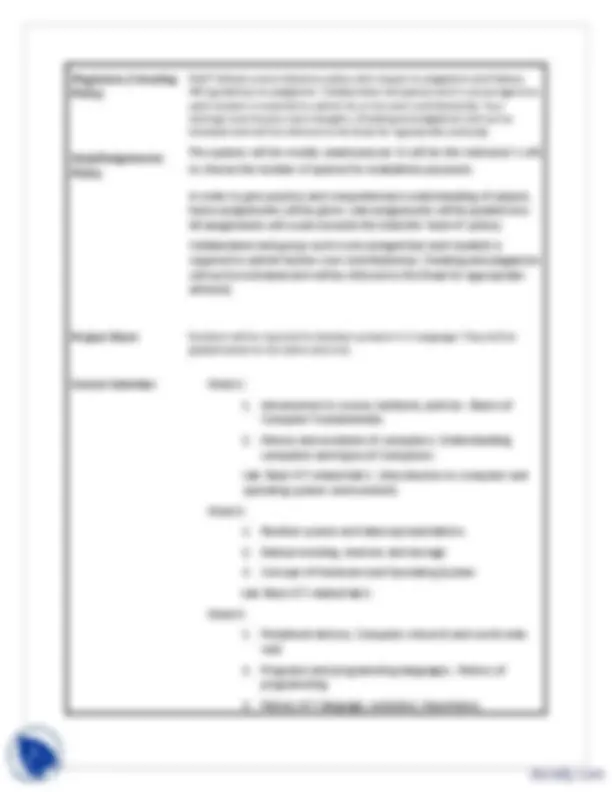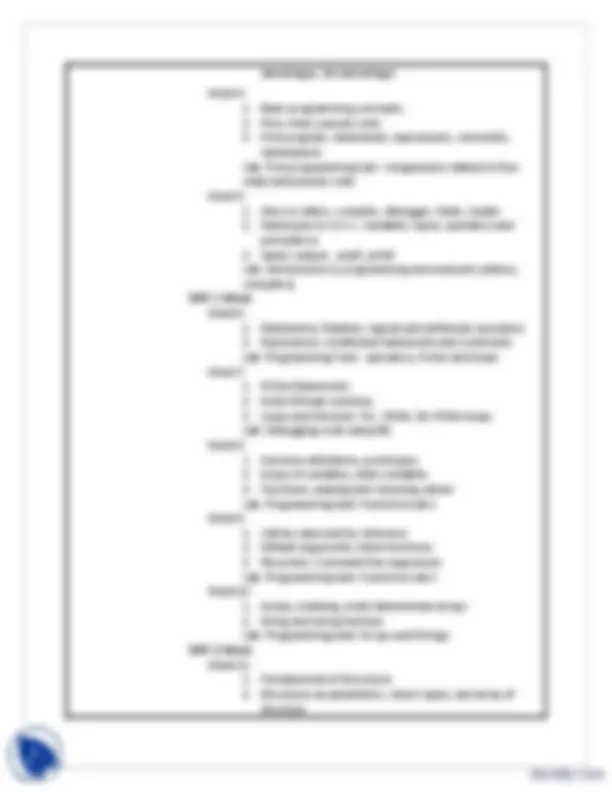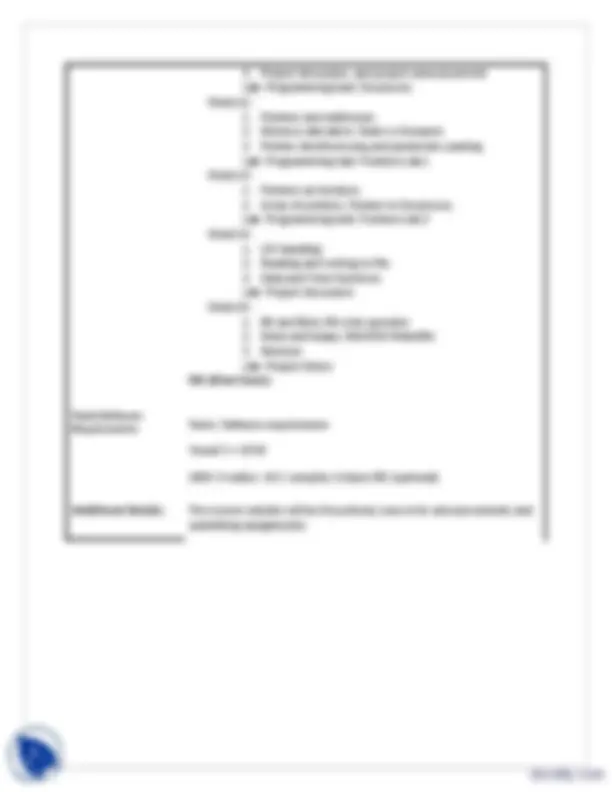





Study with the several resources on Docsity

Earn points by helping other students or get them with a premium plan


Prepare for your exams
Study with the several resources on Docsity

Earn points to download
Earn points by helping other students or get them with a premium plan
Community
Ask the community for help and clear up your study doubts
Discover the best universities in your country according to Docsity users
Free resources
Download our free guides on studying techniques, anxiety management strategies, and thesis advice from Docsity tutors
The course covers important and advance elements of C and C plus plus programming language. This course provides the student with the skills required to design, code, and test and execute programs of simple to intermediate complexity. It includes: Introductory, Topics, Computer, Programming, Structural, Components, Control, Bitwise, Operators, Logic
Typology: Lecture notes
1 / 5

This page cannot be seen from the preview
Don't miss anything!




Title Credits Semester Duration Computer Fundamentals 3 + 1 18 Weeks Course Code: Semester: Class:
Fall 2010 BEE7AB Instructor: Email: website: Office: Extension: HPC‐Lab 2207 Counseling Hours: Teaching Assistant: Email: website: Class: Extension: RA (HPC‐lab) Pre‐requisites: Since this course features introductory topics in Computer Programming, it has no pre‐requisites Course Description: The course covers important and advance elements of C/C++ programming language. After completion of the course students will get hold of obligatory basis for writing small and large scale structural programs using C/C++ language by using primitive and advanced C/C++ elements. They will be well advance in logic especially in dealing with quick programming. This course provides the student with the skills required to design, code, and test and execute C/C++ programs of simple to intermediate complexity.
Objective: This course has two main objectives. First objective is to give students introduction to Computers, its components, networks and world wide web. Secondly the course will familiarize students with the structural programming concepts. Course starts with the very primitive and basic concepts of programming. It will cover basic and advance C/C++ elements along with development of programming logic. The initial phase will start with focus on Introduction to C/C++ Environment, Data types, Format Specifier, Control Structures, Pointers, Function Pointers, Structures, unions, enumerations, etc. In later phase students will learn Bitwise Operators, File I/O and the process of porting their programs to other operating systems. Outcomes:
advantages, dis‐advantages Week 4: